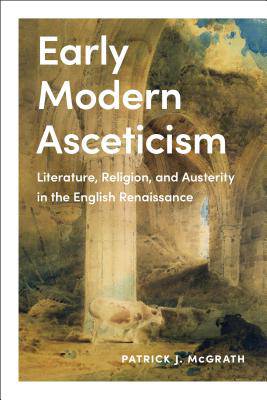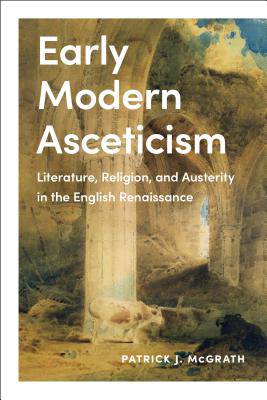
- Afhalen na 1 uur in een winkel met voorraad
- Gratis thuislevering in België vanaf € 30
- Ruim aanbod met 7 miljoen producten
- Afhalen na 1 uur in een winkel met voorraad
- Gratis thuislevering in België vanaf € 30
- Ruim aanbod met 7 miljoen producten
Early Modern Asceticism
Literature, Religion, and Austerity in the English Renaissance
Patrick J McGrathOmschrijving
In discussions of the works of Donne, Milton, Marvell, and Bunyan, Early Modern Asceticism shows how conflicting approaches to asceticism animate depictions of sexuality, subjectivity, and embodiment in early modern literature and religion. The book challenges the perception that the Renaissance marks a decisive shift in attitudes towards the body, sex, and the self. In early modernity, self-respect was a Satanic impulse that had to be annihilated - the body was not celebrated, but beaten into subjection - and, feeling circumscribed by sexual desire, ascetics found relief in pain, solitude, and deformity. On the basis of this austerity, Early Modern Asceticism questions the ease with which scholarship often elides the early and the modern.
Specificaties
Betrokkenen
- Auteur(s):
- Uitgeverij:
Inhoud
- Aantal bladzijden:
- 248
- Taal:
- Engels
Eigenschappen
- Productcode (EAN):
- 9781487505325
- Verschijningsdatum:
- 18/10/2019
- Uitvoering:
- Hardcover
- Formaat:
- Genaaid
- Afmetingen:
- 155 mm x 231 mm
- Gewicht:
- 2199 g

Alleen bij Standaard Boekhandel
Beoordelingen
We publiceren alleen reviews die voldoen aan de voorwaarden voor reviews. Bekijk onze voorwaarden voor reviews.











